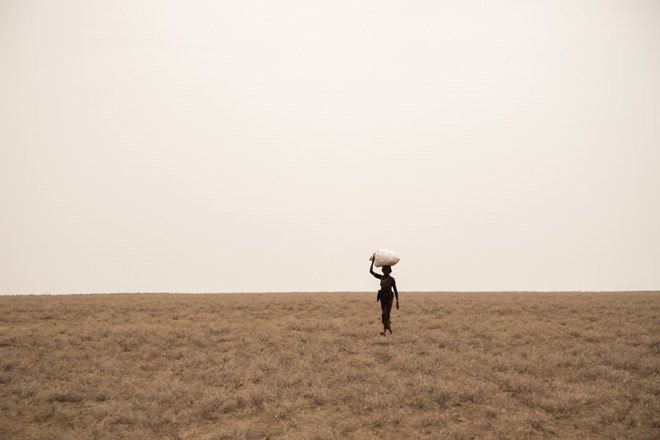
Thursday October 12, 2023
The United Nations World Food Program (WFP) has begun rolling out food distributions to nearly 900,000 refugees in Ethiopia after a hiatus due to food aid diversion.

The United Nations World Food Program (WFP) has begun rolling out food distributions to nearly 900,000 refugees in Ethiopia after a hiatus due to food aid diversion.
Families living in refugee camps across five regions, including new arrivals who have fled from Sudan, are receiving food parcels for the first time since the WFP paused food distributions in June 2023, the WFP said in a statement issued late Monday.
In June, the WFP suspended its food aid assistance program in the East African country, citing large-scale and "absolutely unacceptable" food aid misappropriation, and diversion. The WFP said the resumption of food aid to refugees in Ethiopia follows a full revamp of the safeguards and controls in its refugee operations.
According to the statement, around 35,000 people who have fled from Sudan to Ethiopia in the last six months urgently require food assistance, while Ethiopia also hosts a further 850,000 refugees mostly from Somalia, South Sudan and Eritrea.
"WFP teams and our partners have been working around the clock to ensure we can get food to those who need it most," the statement quoted Valerie Guarnieri, WFP's assistant executive director, as saying. "Food is a lifeline for refugees living in unimaginably hard conditions, and it's a relief that we now have measures in place to resume vital support."
The statement said the resumption of food distributions for refugees follows major reforms in all camps across the country, including all 24 warehouses in refugee camps are now exclusively managed by the WFP while refugees will now be digitally enrolled for support through UNHCR's Global Distribution Tracking Tool.
The new reforms also include bolstered feedback and reporting systems for refugees, while additional non-government organizations have been recruited and trained by the WFP to manage food distributions. New and detailed food collection procedures will ensure that refugees know they are receiving the right entitlements every time.
The WFP further said it is making great progress in testing and rollout controls and measures needed to resume food distributions for millions of food-insecure Ethiopians as well.
This includes working directly with communities to identify and target the most vulnerable people and digitally register them for assistance, the WFP said, adding that it also includes enhanced logistics and distribution mechanisms that allow for more precise tracking right through to each family supported.
Noting the resumption of food assistance for refugees is vital, the WFP said the latest hunger data shows that refugee food security has deteriorated in the past months, leading to increased malnutrition, heightened tensions around the camps and even unsafe journeys back across the border.